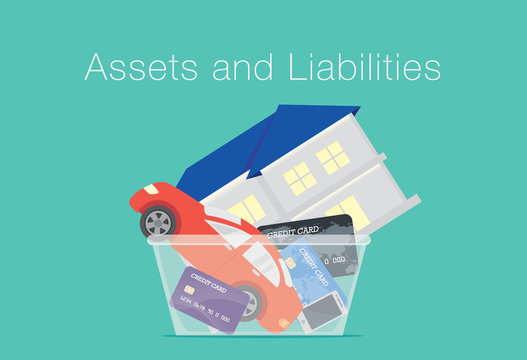Last updated Apr. 3, 2023 by Favour Chinaza
The straightforward answer is YES, and your car is an asset. Your car is actually a valuable asset. “An asset is anything of value that can be converted into cash,” according to popular definitions.
You can sell your car today if you put it on the market. That alone qualifies your vehicle as an asset.
It is critical to understand what a liability is, which explains why many people are unsure whether to classify their cars as assets or liabilities.
Assets are resources that you own, whereas liabilities are obligations.
Because your car is a valuable asset to you, it falls under the category of assets. It is also simple to convert to cash.
Good Read: How to Buy a Car on Craigslist
People are Divergent on Whether Car is Asset or Liability
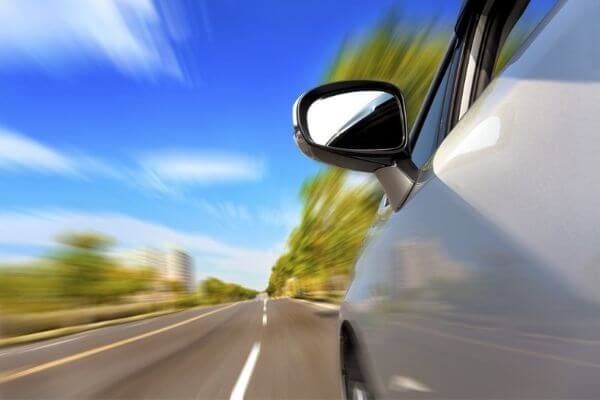
It shouldn’t be too difficult for you to determine what your assets and liabilities are up to the point when you reach your vehicle. Is it more of an advantage or a disadvantage to the owner to have a vehicle?
If you question a group of people, you will probably get two responses on whether a car is an asset or a liability that are quite different.
This response is because people tend to have highly unique perspectives on things. So how precisely are you going to figure out which one is correct?
This article will shed light on the reality of assets and liabilities, especially concerning your automobile. Moreover, it will do so in the context of the automotive industry.
In this manner, you can precisely estimate your current net worth!
How Is a Car an Asset?
When a car leaves the dealer’s lot, it often loses a significant portion of its value. According to U.S. News & World Report, the typical new automobile may lose up to 30% of its value in the first year and another 15% to 18% in each of the following years.
So how can an automobile be called an asset if a valuable asset is something that retains value? Again, the idea of a depreciating asset is the solution’s key.
An asset that depreciates over time yet still has value is said to be depreciating. Automobiles are susceptible to several depreciating elements that may lead to value declines, unlike real estate, savings accounts, and other assets that improve in value.
An automobile experiences greater wear and tear the more miles it has on the odometer.
Each ding and dent resulting from an accident or environmental exposure reduces the value even more. An older automobile loses its worth even more over time when newer versions are introduced.
This depreciation is even without accounting for the cost of ownership, which now costs around $10,000 a year and covers maintenance, insurance, and gas expenses.
What if I Bought my Car With a Loan?

Buying a car with a loan does not turn it into a liability. First, you must separate the car from the loan that paid for it. The vehicle is an asset, and the loan (or debt) used to purchase it is a liability.
So, how valuable is my car?
An asset is either depreciating or increasing in value. Unlike most real estate investments and other types of assets, your car is a depreciating asset because the price at which you can sell it decreases over time.
The fact that your car depreciates does not make it valuable. Instead, you want to ask, “am I getting value out of ownership of this car while I own it?”
Making deliveries as a business, commuting around cities with bad bus transportation, using your car as Uber, etc.
- DoorDash: is a fantastic side hustle you can do with your car. It is also one of the best food delivery services to work for. You can work whenever you want and earn extra money delivering items to people with DoorDash. Furthermore, you can keep 100% of the tips you earn with DoorDash, which is fantastic!
- Uber: Working for ride-sharing platforms like Uber or Lyft is another way to get paid to drive your car. Making money with ride-sharing platforms requires more effort than simply delivering items, but it is still viable. Check out Uber or Lyft if you want to make some extra money with your car.
- Turo: is a simple way to make money with your car. Turo is a platform that allows you to rent out your car when you are not using it, and you can earn thousands of dollars doing so! It’s a very simple way to make money with your car, and I highly recommend checking out Turo if you want to make some extra money quickly.
- Instacart: is another platform similar to DoorDash that you can use to make money with your car. Instacart is an excellent platform for making money with your car in your spare time. Instacart, like DoorDash, allows you to keep 100% of your tips!
Should Your Networth Calculation Include Your Car?
Subtract your liabilities from your assets when calculating your net worth. Because your car is a depreciating asset, it should be factored into the calculation.
When considering your vehicle, however, you must first determine its current market value. However, any car loans associated with your vehicle are considered liabilities and should be included.
If you are a business owner, your car should definitely be included in your business networth. You can decide not to add your net worth if
- You have an old gown and wish to keep it till it breaks down totally
- You are asset-tracking and generating income
- You don’t want to recalculate your car’s value each depreciating year constantly.
What personal finance is to everyone is different. Some people feel their car is part of it, and some don’t. I think a car is a liability, so that I wouldn’t add it. Unless I have a special kind of luxury with historical value, that is, know its resell value is high.
How Do You Calculate the Value of your Car
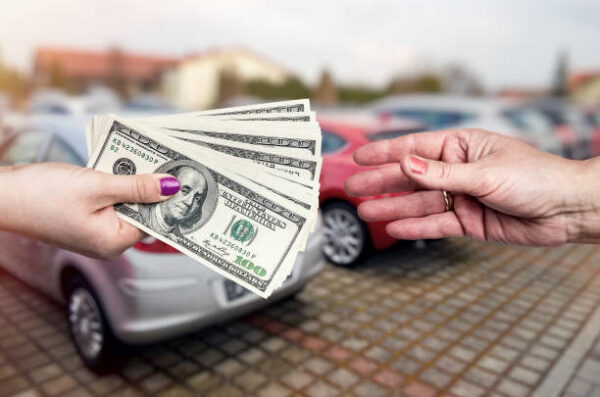
There are different ways you can calculate the value of your car.
Determine the worth of Your Car
By the end of the first year after purchase, a brand-new vehicle has lost more than 20% of its initial value. Moreover, it will continue to lose 10% of its value per year in the second, third, fourth, and fifth years after purchase.
You can calculate the value of your car on your own using this information.
Visit Kelly Blue Book and Other Car Valuation websites.
Blue Book is a website that helps people determine the current value of their vehicle. So if you have all of your vehicle’s information, this site will quickly and easily calculate its value.
Here’s what you’ll need to enter into Kelly Blue Book to find out how much your car is worth:
- The make and model of your vehicle
- The year it was manufactured
- Its range
- Its color Its current state
The site will present you with various value options based on the method you choose to sell your car.
In most cases, the best price for your car will be obtained through a trade-in. However, you can easily find a dealership that will allow you to add money to your vehicle to purchase a new car.
You should sell your car to a private party buyer to get the most money for your car. However, finding someone interested in purchasing your car may not be easy.
Is There an Alternative to Kelly Blue Book?
Other websites that provide similar services to Kelly Blue Book include Edmonds and NADA.
These websites also have excellent databases and systems that can instantly and seamlessly tell you how much your vehicle is worth. Although the values on these websites will not be the same, you can use them to estimate the average cost of your car.
Examine the Prices of Similar Vehicles to Yours.
Some people drive the same car model that you do. As a result, you may be able to find others who have already determined the worth of their vehicles.
Visit Craigslist, CarGurus, AutoTrader, eBay Motors, and other similar websites to determine the value of your vehicle.
When looking for the value of your car on these websites, pay attention to the local listings because vehicle values vary depending on location.
Here are some suggestions for lowering your vehicle’s liability:
Consider purchasing a used car: A vehicle that is even a year old will not lose value as quickly as a new car. Sure, you’ll miss the fresh car smell, but it might be worth it. Actually, there are pros and cons to driving a used car. So, consider it fully before making a purchase.
Maintain your vehicle at all times: A professional mechanic should inspect your car at least once a year. Checking and replacing the oil filter, air filter, brake pads, tires, and other vehicle components will prevent long-term, more expensive damage.
Check that your vehicle has adequate insurance coverage: In the event of an accident, your insurance coverage can provide you with peace of mind. If you are unable to use your vehicle due to damage, its true ‘value’ is lost, and its status as a liability is cemented.
Companies now offer the option to start a policy and renew your auto policy online, making it easier to obtain insurance. In addition, you can look for where to find the best car insurance agents and make sure to carefully read the terms of your policy so that you are not caught off guard if you need to file a claim.
So, if you’re considering buying a car, remember that your physical asset will almost certainly be a financial liability, but the convenience it provides may be invaluable.
Is a Financed Car Still Considered an Asset?
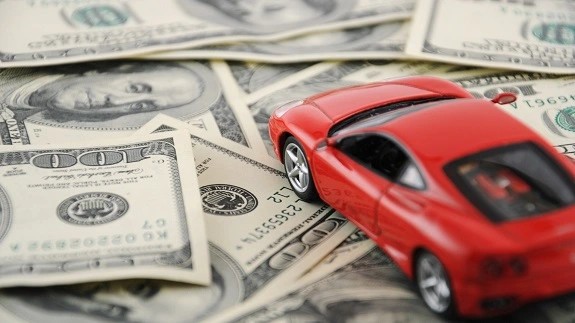
What if you bought your car on finance? Can you still consider the car an asset or liability? Again, the answer is Both yes and no.
The vehicle itself is an asset because it is a tangible item that helps you get from point A to point B and has some market value if you need to sell it.
Financing the car means you borrowed money to buy it, so you don’t have full ownership of it yet. You are still making monthly payments for the car.
On the other hand, the car loan you took out to get that car is a liability. So you agreed to repay that loan in full over a set period to instill financial responsibility in yourself.
Car loans are always higher than the car’s value, so your creditor is at a profit. So the liability of the loan is greater than the asset of your car, not until you pay off the loan or a certain proportion of it.
Car Running Costs
Cars have running costs, which may sometimes be greater than the car’s value. Running costs include repairing parts, sales tax, maintenance, toll fee, insurance, parking fees, petrol, replacement of parts, etc.
These running costs don’t impact the value of your car unless you want to sell it at a secondhand value. But the car, regardless of all these, is still an asset to you.
The running costs that can affect the value of your car are damages like accidents and repairs over time. But you can still sell the car, though at a lower price.
Can a Car Ever be Considered an Investment?
Yes, a vehicle can be considered an investment, but that answer has a truck-sized caveat.
The value of rare and exotic cars rises as the number of road-worthy models decreases.
Unless you’re talking about a rare and immaculately maintained car like a 1964 Ferrari 250 LM or a 1994 McLaren F1, your car will unlikely retain much value over time and will eventually become a poor investment.
What Is The Best Type Of Car To Buy?
Some cars depreciate much faster than others, meaning you will lose value quickly if you buy the wrong type of car.
To begin, you should buy a car that is at least 3 to 4 years old because all cars lose most of their value in the first 3 to 4 years of their lives.
So, before we get into the best car types to buy, it is best to buy a used car that is at least three to four years old.
Now, here is a list of the best vehicle models in terms of value retention:
- Wrangler Jeep
- Tacoma Toyota
- The Honda Civic
- The Toyota RAV-4
- Subaru WRX, Honda CR-V
More cars retain their value fairly well, so before you buy one, ensure it will retain its value and be reliable over the years you own it.
Can You Increase the Value of Your Car?
You can do a few things to increase your car’s value in the short and long run.
- Earn money while driving: Consider using an app to provide ride-sharing or delivery services.
- Renting out your car for a short period: Certain companies permit you to provide this renting service to others, and there are different ways to rent your car for money.
- Take care of your car: Maintain necessary checkups and drive cautiously to help avoid accidents.
- Purchase a vehicle that will hold its value for a longer period: Some cars are notorious for depreciating slowly over time.
What is Liability
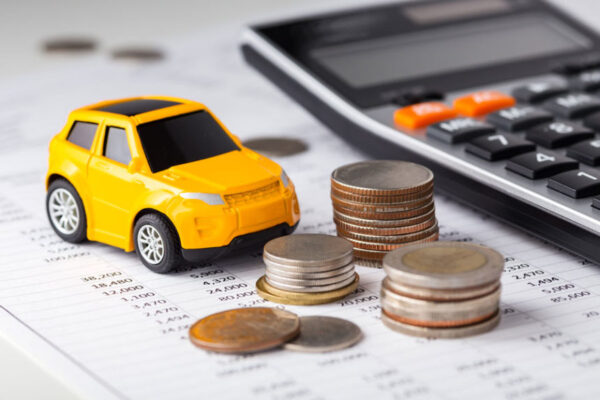
One example of a liability is the total amount of money owed to a bank or another individual, which may be considered a debt.
Your net worth will decrease if you have any obligations, such as outstanding loans or debts, such as a mortgage, credit card debt, or vehicle loan. However, your net worth will remain the same if you do not have any commitments.
This is because your obligations are more than your assets. It is clear that your entire financial status is not as stable as it might be if you owe money to another person.
This proves your overall financial condition is not as robust as it could be.
It is because to pay off the debt, you would need to sell off some of your assets, which would reduce the total amount of cash you currently own. This is the reason behind this.
Cars and Depreciation
Most new car models experience the greatest depreciation within the first three to five years of ownership. During this time, the price can drop by 20 to 35 percent.
Other factors contributing to a faster rate of price depreciation include the vehicle’s general condition (if it has any dents, scratches, or damages) and the availability of spare parts in after-sales centers.
When viewed financially, most car owners consider their vehicle a liability. However, this does not mean you should get rid of your car right away.
It is a worthwhile liability if owning a car relieves you of some of your responsibilities or saves you time (e.g., commuting takes more hours). However, never consider your car an investment; it rarely appreciates in value.
Some older car models can be an asset at first, but as time passes, they can become a liability due to wear and tear.
This car’s liability is generally because it no longer performs as well as it once did: fuel economy is down, repairs are more frequent, and spare parts are scarce (especially if its manufacturer stopped producing this model).
If you believe your car has become a major liability, it may be time to sell it.
Car and Liability
Some people consider a car a liability because it costs money to maintain. For example, you must pay for gas, oil changes, routine maintenance, and car expenses.
You must also pay for insurance and repairs if it breaks down. But, on the other hand, a car is not a liability in the true sense of the word because it has value. Instead, it is a declining asset.
There is an exception to every rule. For example, some automobiles can be converted into assets.
Many people who buy and sell cars have made extra money by selling undervalued vehicles. Refurbishing or repairing certain car models (especially vintage cars) can be lucrative when done correctly.
Suppose your car is also used for business operations (for example, you use your pickup or multi-cab to deliver your products). Then it generates more money than it costs to maintain; it is more likely to be an asset; unless it breaks down.
Is a Car an Asset For a Mortgage

You may include any material you own that has value as a component of your physical assets, and you are not restricted in any way.
Put another way, and you can include anything a person can handle in your physical assets.
Physical assets such as real estate, houses, cars, boats, recreational vehicles, artwork, and jewelry may be sold to generate the cash needed to apply for a mortgage.
Real estate is another example. Although this is not an exhaustive list of tangible assets that can be liquidated, it does include the most common types of tangible assets.
The types of tangible assets that can be liquidated are listed below. However, this list does not include everything that could possibly be included.
Good Read: How to Buy a Used Car from a Private Party
Bottom Line
Unlike real estate or stock in a company, vehicles are among the few assets that lose value over time. A new car’s value begins to decline almost immediately after you drive it off the lot for the first time.
Yes, a car is an asset that contributes to your net worth; while it depreciates, it retains value and can be traded for cash. However, keep in mind that a vehicle does have liabilities.
If you are still making payments on a vehicle loan, you must add that amount to the liabilities column of your calculation. If you don’t do this, you’ll have no idea if you have any obligations at all.
Frequently Asked Questions
Q: Is a car an asset?
Despite this, a car is an asset because it can be quickly sold and converted to cash, albeit for less than what you paid. That alone qualifies it as an asset. Unfortunately, these additional costs and the constant decline in value make a car a depreciating asset.
Q: Is a car considered a fixed or current asset?
Yes, a car is considered a fixed or capital asset because it benefits the business in the long run. However, one thing to remember is that the car is subject to depreciation.
Q: Is a car valuable?
A vehicle that you own outright is usually considered a valuable asset. However, a financed vehicle could be regarded as a debt instead of an asset. Your vehicle’s fair market value and the amount you owe on it will determine whether it is an asset or a debt.
Q: How can I turn my car into an asset?
Another way to turn your car into an asset is to drive it for Uber or Lyft, two of the most popular ride-sharing services. To do so, your vehicle must be a 2007 model or newer. In addition, you must pass a background check, and your vehicle must pass inspection.
Q: Is a car a good investment?
NET WORTH = ASSETS – LIABILITIES
Some possessions (such as your car, furniture, and clothing) are assets, but they are not wealth-creating assets because they do not earn money or increase in value. For example, a new car loses value the moment it is driven off the lot.
Q: What asset type is a car?
Because of its potential long-term value to the company, an automobile may, in fact, be classified as a “fixed asset” or “capital asset.”
Q: Is a car an example of a liability?
The car is an asset since it is a concrete object that lets you go from point A to point B and has some level of value on the market if you ever need to sell it. Therefore, if you ever need to sell it, you can collect some money for it. However, you now have a responsibility in the form of the auto loan you took to purchase the vehicle.
Q: Is a car a depreciating asset?
An automobile still counts as an asset since it can be rapidly converted into cash by selling it. That fact alone establishes its value as an asset. However, an automobile is a depreciating asset due to its high initial cost and subsequent value fall.
Q: Why is a car not an asset?
An automobile is not an asset for the simple and apparent reason that it loses value over time while also taking money out of your pocket. Every day that you drive it, your automobile loses value while also draining your finances to maintain it via gasoline, service, insurance, etc.
Q: Is a car loan an asset?
An automobile loan is a liability since it reflects the money you owe, even though a car is considered a financial asset. Your financed automobile gradually becomes an asset as you pay off your debt and accumulate equity. Therefore, a loan may be seen as an asset, but it is still a liability since you must ultimately pay it back.
Q: What is considered an asset?
An asset is anything that has both current and potential worth. An asset, such as a piece of equipment, a financial instrument, or a patent, may often provide cash flows in the future. Homes, cars, investments, works of art, and household items are examples of personal property.
Q: Is a Car a debt?
Generally speaking, an asset is a vehicle that you own entirely. A funded car, however, can be seen as a debt rather than an asset. Whether your car is an asset or a debt depends on its fair market value and the amount owed on it.

